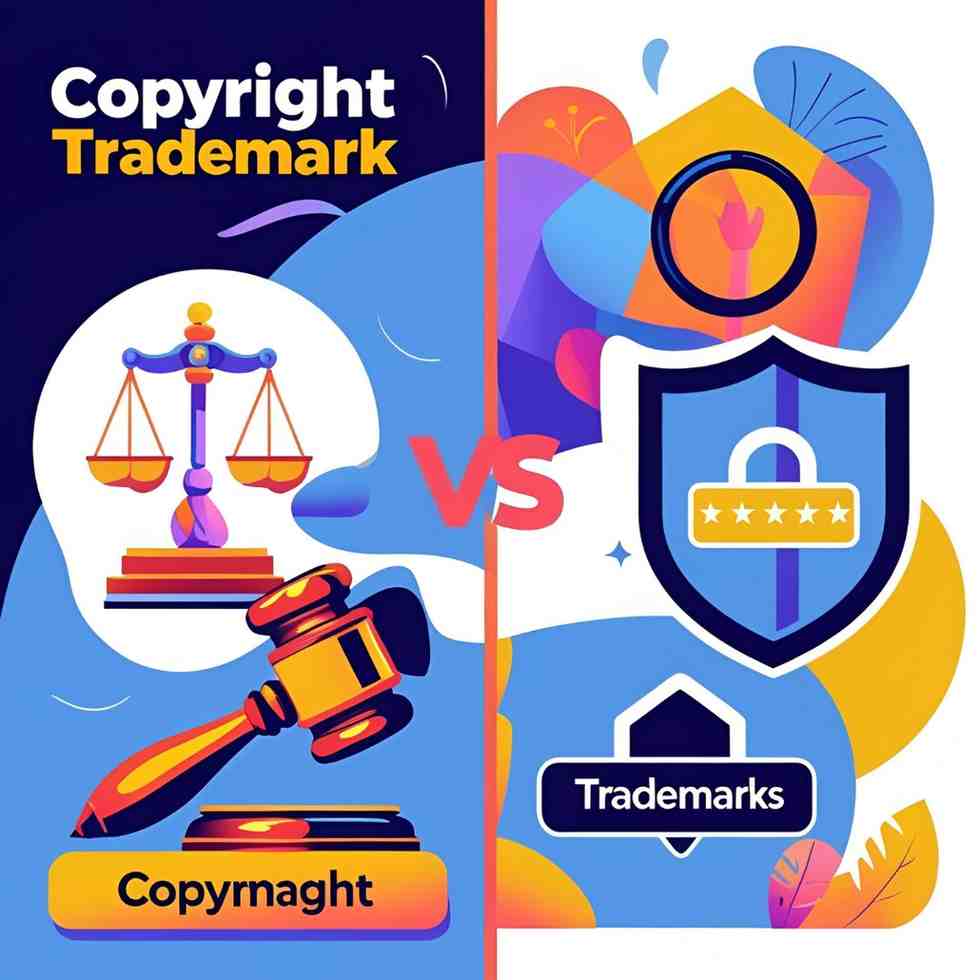


Learn the key differences between copyright and trademark, and why copyright registration is essential to protect your original creative work.
When it comes to protecting intellectual property, understanding the difference between copyright and trademark is essential. Although both protect rights related to creativity and branding, they apply to different types of assets and serve different legal purposes.
Copyright is a legal protection given to creators of original work such as books, music, films, software, and artwork. It ensures that the author or creator has exclusive rights to use, reproduce, or distribute their content. In India, copyright exists the moment the work is created, but for legal proof and enforcement, copyright registration is highly recommended. With a valid registration, it becomes easier to take legal action against unauthorized use or copying of the work.
A trademark protects brand identifiers such as names, logos, taglines, and symbols that distinguish one business or product from another. Trademark registration provides exclusive rights to use the mark in a specific class of goods or services, helping build brand identity and consumer trust. Without registration, it becomes difficult to legally challenge brand misuse or counterfeit use by competitors.
| Aspect | Copyright | Trademark |
|---|---|---|
| Protects | Original literary, artistic, or creative works | Brand identifiers like name, logo, or slogan |
| Applies To | Content such as songs, books, films, software | Business names, product names, brand logos |
| Registration | Copyright registration is optional but useful | Trademark registration is required for protection |
| Duration | Lifetime of creator plus 60 years | 10 years, renewable indefinitely |
| Purpose | Safeguards creative expression | Prevents brand confusion and misuse |
| Legal Authority | Copyright Office of India | Trademark Registry of India |
If you are an artist, author, software developer, or content creator, copyright registration helps safeguard your original work from unauthorized copying or misuse. On the other hand, if you are running a business or launching a product or service, trademark registration ensures that your brand identity remains exclusive and protected.
For example, if you design a logo for your company, you can apply for copyright registration to protect the artwork itself, while trademark registration would protect the logo as part of your brand.
Knowing the difference between copyright and trademark is important for protecting your creative and business interests. Copyright registration secures your rights as a creator, while trademark registration helps establish and protect your brand. Depending on the nature of your work or business, you may need one or both types of protection to fully secure your intellectual property.
